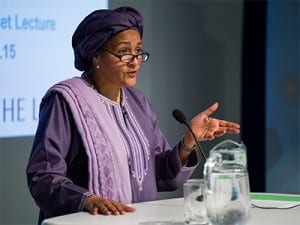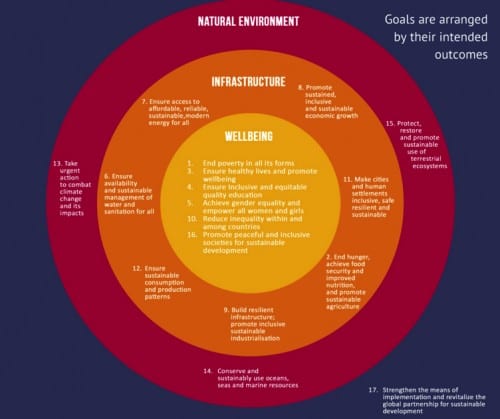2015 UCL Lancet Lecture with Amina J. Mohammed
By ucyow3c, on 16 November 2015
![]() Written by Hannah Sender, Project and Communications Officer, UCL Institute for Global Prosperity
Written by Hannah Sender, Project and Communications Officer, UCL Institute for Global Prosperity

Amina J. Mohammed addresses audience members
Last Thursday I listened to the annual UCL Lancet Lecture with Amina J. Mohammed, Special Adviser to UN Secretary-General Ban Ki-Moon on post-2015 development planning and recently sworn in Environment Minister in the Nigerian government.
I had planned to finish an article about her address to UCL staff and students the next day, Friday 13 November. I didn’t, and I returned to the article on Sunday 15 November. Between the time I began to write about Amina’s lecture and the time I restarted, at least 129 people were killed in a series of attacks in and on Paris. The day before, 43 people were killed in a suburb in Beirut. ISIS has claimed responsibility for both attacks.
Why bring this up? What does terrorism have to do with the Sustainable Development Goals (SDGs) – the subject of last Thursday’s lecture? What does the aftermath of those attacks have to do with the goals? From what I had learned while listening to Amina, the recently announced set of 17 goals and 169 associated targets have everything to do with Paris, Beirut and their aftermaths.
What the SDGs are designed to respond to, Amina told her audience, is the complexity of the world as an interconnected place. There are several ways the SDG agenda will do so: by encouraging inter-country cooperation and sharing of responsibilities, inter-scalar debates and interventions at the local, national and international levels, and interdisciplinary thinking unshackled by silos.
 Close
Close


